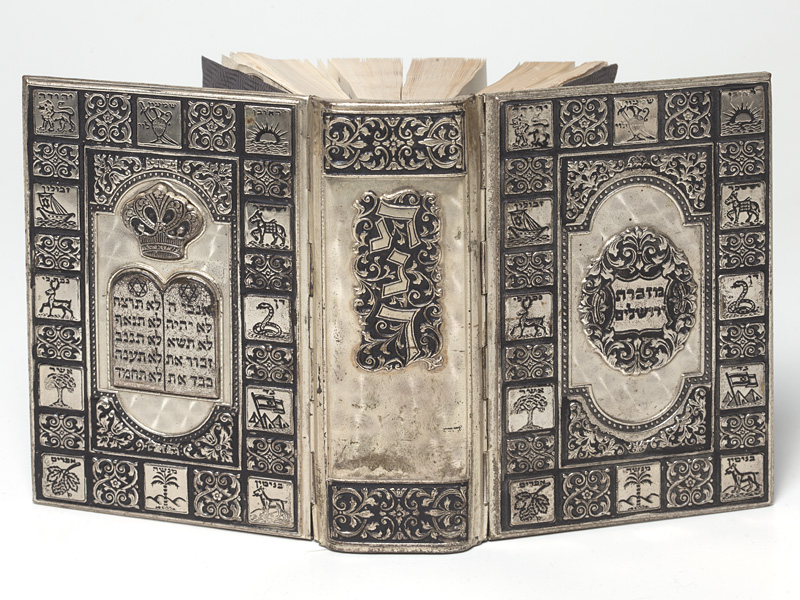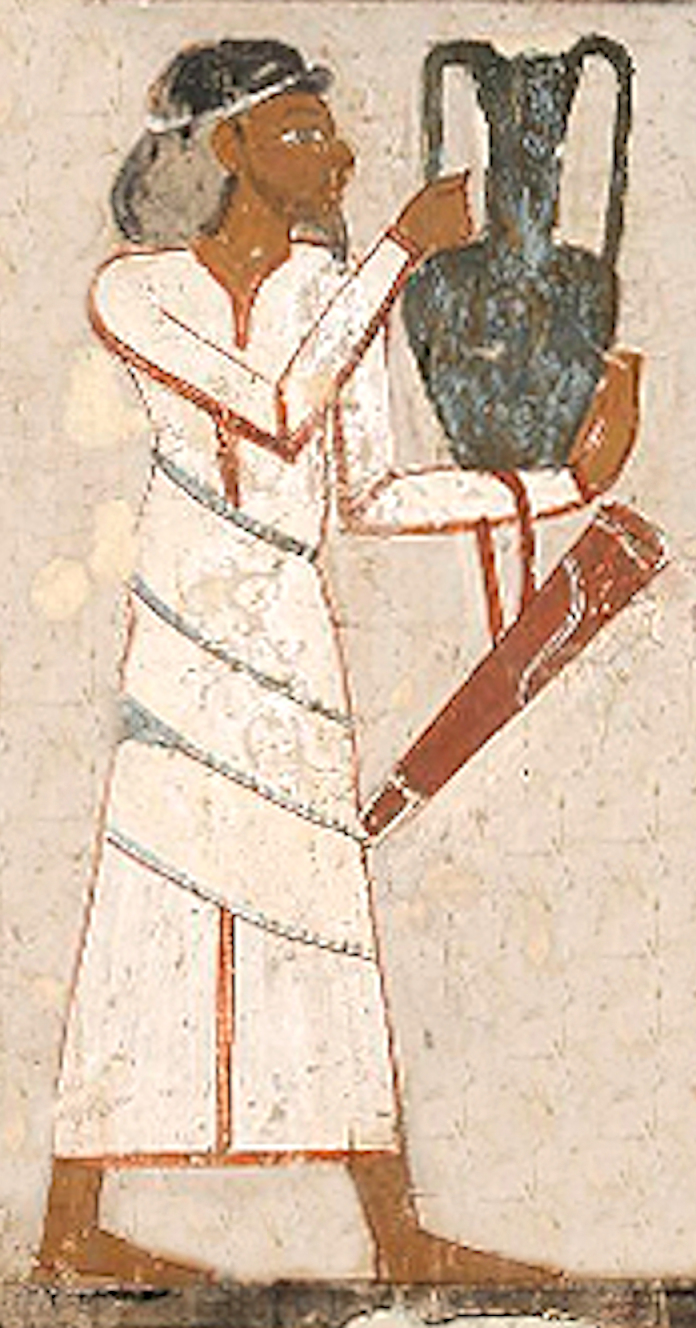|
Contra Apionem
''Against Apion'' ( el, Φλαΐου Ἰωσήπου περὶ ἀρχαιότητος Ἰουδαίων λόγος α and ; Latin ''Contra Apionem'' or ''In Apionem'') is a polemical work written by Flavius Josephus as a defense of Judaism as a classical religion and philosophy against criticism by Apion, stressing its antiquity against what he perceived as more recent traditions of the Greeks. One of his main sources was Menander of Ephesus. ''Against Apion'' cites Josephus' earlier work Antiquities of the Jews, so can be dated after C.E. 94. It was possibly written in the early second century. Text ''Against Apion'' 1:8 also defines which books Josephus viewed as being in the Jewish Scriptures: In the second book, Josephus defends the historicity of the Jewish Bible against accusations made by Apion (who Josephus states is not Greek), arguing that Apion in fact rehashes material of Manetho's, though there was apparently some confusion between Manetho's references to the H ... [...More Info...] [...Related Items...] OR: [Wikipedia] [Google] [Baidu] |
Latin
Latin (, or , ) is a classical language belonging to the Italic branch of the Indo-European languages. Latin was originally a dialect spoken in the lower Tiber area (then known as Latium) around present-day Rome, but through the power of the Roman Republic it became the dominant language in the Italian region and subsequently throughout the Roman Empire. Even after the fall of Western Rome, Latin remained the common language of international communication, science, scholarship and academia in Europe until well into the 18th century, when other regional vernaculars (including its own descendants, the Romance languages) supplanted it in common academic and political usage, and it eventually became a dead language in the modern linguistic definition. Latin is a highly inflected language, with three distinct genders (masculine, feminine, and neuter), six or seven noun cases (nominative, accusative, genitive, dative, ablative, and vocative), five declensions, four verb conjuga ... [...More Info...] [...Related Items...] OR: [Wikipedia] [Google] [Baidu] |
Flavius Josephus
Flavius Josephus (; grc-gre, Ἰώσηπος, ; 37 – 100) was a first-century Romano-Jewish historian and military leader, best known for ''The Jewish War'', who was born in Jerusalem—then part of Roman Judea—to a father of priestly descent and a mother who claimed royal ancestry. He initially fought against the Romans during the First Jewish–Roman War as head of Jewish forces in Galilee, until surrendering in 67 AD to Roman forces led by Vespasian after the six-week siege of Yodfat. Josephus claimed the Jewish Messianic prophecies that initiated the First Jewish–Roman War made reference to Vespasian becoming Emperor of Rome. In response, Vespasian decided to keep Josephus as a slave and presumably interpreter. After Vespasian became Emperor in 69 AD, he granted Josephus his freedom, at which time Josephus assumed the emperor's family name of Flavius.Simon Claude Mimouni, ''Le Judaïsme ancien du VIe siècle avant notre ère au IIIe siècle de notre ère : Des ... [...More Info...] [...Related Items...] OR: [Wikipedia] [Google] [Baidu] |
Judaism
Judaism ( he, ''Yahăḏūṯ'') is an Abrahamic, monotheistic, and ethnic religion comprising the collective religious, cultural, and legal tradition and civilization of the Jewish people. It has its roots as an organized religion in the Middle East during the Bronze Age. Modern Judaism evolved from Yahwism, the religion of ancient Israel and Judah, by the late 6th century BCE, and is thus considered to be one of the oldest monotheistic religions. Judaism is considered by religious Jews to be the expression of the covenant that God established with the Israelites, their ancestors. It encompasses a wide body of texts, practices, theological positions, and forms of organization. The Torah, as it is commonly understood by Jews, is part of the larger text known as the ''Tanakh''. The ''Tanakh'' is also known to secular scholars of religion as the Hebrew Bible, and to Christians as the " Old Testament". The Torah's supplemental oral tradition is represented by later texts s ... [...More Info...] [...Related Items...] OR: [Wikipedia] [Google] [Baidu] |
Apion
Apion Pleistoneices ( el, Ἀπίων Πλειστονίκου ''Apíōn Pleistoníkēs''; 30–20 BC – c. AD 45–48), also called Apion Mochthos, was a Hellenized Egyptian grammarian, sophist, and commentator on Homer. He was born at the Siwa Oasis and flourished in the first half of the 1st century AD. His name is sometimes incorrectly spelt Appion, and some sources, as in the Suda, call him a son of Pleistoneices, while others more correctly state that Pleistoneices was only a surname, and that he was the son of Poseidonius. Life Apion studied at Alexandria under Apollonius the Sophist (the son of Archibius of Alexandria) and Didymus, from whom he inherited his love for the Homeric poems. He settled in Rome at an unknown date, and taught rhetoric as the successor of the grammarian Theon until the reign of Claudius. Apion appears to have enjoyed an extraordinary reputation for his extensive knowledge and his versatility as an orator; but the ancients are unanimous in cen ... [...More Info...] [...Related Items...] OR: [Wikipedia] [Google] [Baidu] |
Menander Of Ephesus
Menander of Ephesus ( grc-gre, Μένανδρος; fl. c. early 2nd century BC) was the historian whose lost work on the history of Tyre was used by Josephus, who quotes Menander's list of kings of Tyre in his apologia for the Jews, ''Against Apion'' (1.18). "This Menander wrote the Acts that were done both by the Greeks and Barbarians, under every one of the Tyrian kings, and had taken much pains to learn their history out of their own records." All records having been lost, this second-hand report is the basis for the traditional king-list. Menander, living in a city with a considerable population of Hellenized Jews, also seems to have written on the history of the Jews, often cited by Josephus. Sources The only extant sources for the writing of Menander are citations of his work found in Josephus's two works ''Antiquities of the Jews'' and ''Against Apion'', or in extracts from Josephus's works found in later writers. These later writers were Theophilus of Antioch, Eusebius of ... [...More Info...] [...Related Items...] OR: [Wikipedia] [Google] [Baidu] |
Antiquities Of The Jews
''Antiquities of the Jews'' ( la, Antiquitates Iudaicae; el, Ἰουδαϊκὴ ἀρχαιολογία, ''Ioudaikē archaiologia'') is a 20-volume historiographical work, written in Greek, by historian Flavius Josephus in the 13th year of the reign of Roman emperor Flavius Domitian which was around AD 93 or 94.Freedman, David Noel, ed., ''The Anchor Bible Dictionary'', (New York: Doubleday, 1997, 1992). ''Antiquities of the Jews'' contains an account of the history of the Jewish people for Josephus' gentile patrons. In the first ten volumes, Josephus follows the events of the Hebrew Bible beginning with the creation of Adam and Eve. The second ten volumes continues the history of the Jewish people beyond the biblical text and up to the Jewish War, or the First Jewish–Roman War, 66 to 73 CE. This work, along with Josephus's other major work, ''The Jewish War'' (''De Bello Iudaico''), provides valuable background material for historians wishing to understand 1st-century AD Jud ... [...More Info...] [...Related Items...] OR: [Wikipedia] [Google] [Baidu] |
Jewish Scriptures
The Hebrew Bible or Tanakh (;"Tanach" ''''. : ''Tānāḵh''), also known in Hebrew as Miqra (; : ''Mīqrā''), is the canonical collection of script ... [...More Info...] [...Related Items...] OR: [Wikipedia] [Google] [Baidu] |
Artaxerxes I Of Persia
Artaxerxes I (, peo, 𐎠𐎼𐎫𐎧𐏁𐏂𐎠 ; grc-gre, Ἀρταξέρξης) was the fifth King of Kings of the Achaemenid Empire, from 465 to December 424 BC. He was the third son of Xerxes I. He may have been the " Artasyrus" mentioned by Herodotus as being a satrap of the royal satrapy of Bactria. In Greek sources he is also surnamed "long-handed" ( grc, μακρόχειρ ''Makrókheir''; la, Longimanus), allegedly because his right hand was longer than his left. Succession to the throne Artaxerxes was probably born in the reign of his grandfather Darius I, to the emperor's son and heir, Xerxes I. In 465 BC, Xerxes I was murdered by ''Hazarapat'' ("commander of thousand") Artabanus, the commander of the royal bodyguard and the most powerful official in the Persian court, with the help of a eunuch, Aspamitres. Greek historians give contradicting accounts of events. According to Ctesias (in ''Persica'' 20), Artabanus then accused Crown Prince Dariu ... [...More Info...] [...Related Items...] OR: [Wikipedia] [Google] [Baidu] |
Xerxes I
Xerxes I ( peo, 𐎧𐏁𐎹𐎠𐎼𐏁𐎠 ; grc-gre, Ξέρξης ; – August 465 BC), commonly known as Xerxes the Great, was the fourth King of Kings of the Achaemenid Empire, ruling from 486 to 465 BC. He was the son and successor of Darius the Great () and his mother was Atossa, a daughter of Cyrus the Great (), the founder of the Achaemenid empire. Like his father, he ruled the empire at its territorial peak. He ruled from 486 BC until his assassination in 465 BC at the hands of Artabanus, the commander of the royal bodyguard. Xerxes I is notable in Western history for his invasion of Greece in 480 BC. His forces temporarily overran mainland Greece north of the Isthmus of Corinth until losses at Salamis and Plataea a year later reversed these gains and ended the second invasion decisively. However, Xerxes successfully crushed revolts in Egypt and Babylon. Xerxes also oversaw the completion of various construction projects at Susa and Persepolis. ... [...More Info...] [...Related Items...] OR: [Wikipedia] [Google] [Baidu] |
Jewish Bible
The Hebrew Bible or Tanakh (;"Tanach" ''''. : ''Tānāḵh''), also known in Hebrew as Miqra (; : ''Mīqrā''), is the canonical collection of script ... [...More Info...] [...Related Items...] OR: [Wikipedia] [Google] [Baidu] |
Manetho
Manetho (; grc-koi, Μανέθων ''Manéthōn'', ''gen''.: Μανέθωνος) is believed to have been an Egyptian priest from Sebennytos ( cop, Ϫⲉⲙⲛⲟⲩϯ, translit=Čemnouti) who lived in the Ptolemaic Kingdom in the early third century BC, during the Hellenistic period. He authored the ''Aegyptiaca'' (''History of Egypt'') in Greek, a major chronological source for the reigns of the kings of ancient Egypt. It is unclear if he wrote his history and king list during the reign of Ptolemy I Soter or Ptolemy II Philadelphos, but it was completed no later than that of Ptolemy III Euergetes. Name The original Egyptian version of Manetho's name is lost, but some speculate it means "Truth of Thoth", "Gift of Thoth", "Beloved of Thoth", "Beloved of Neith", or "Lover of Neith". Less accepted proposals are ''Myinyu-heter'' ("Horseherd" or "Groom") and ''Ma'ani-Djehuti'' ("I have seen Thoth"). In the Greek language, the earliest fragments (the inscription of uncertain date ... [...More Info...] [...Related Items...] OR: [Wikipedia] [Google] [Baidu] |
Hyksos
Hyksos (; Egyptian '' ḥqꜣ(w)- ḫꜣswt'', Egyptological pronunciation: ''hekau khasut'', "ruler(s) of foreign lands") is a term which, in modern Egyptology, designates the kings of the Fifteenth Dynasty of Egypt (fl. c. 1650–1550 BC). The seat of power of these kings was the city of Avaris in the Nile delta, from where they ruled over Lower and Middle Egypt up to Cusae. In the ''Aegyptiaca'', a history of Egypt written by the Greco-Egyptian priest and historian Manetho in the 3rd century BC, the term Hyksos is used ethnically to designate people of probable West Semitic, Levantine origin. While Manetho portrayed the Hyksos as invaders and oppressors, this interpretation is questioned in modern Egyptology. Instead, Hyksos rule might have been preceded by groups of Canaanite peoples who gradually settled in the Nile delta from the end of the Twelfth Dynasty onwards and who may have seceded from the crumbling and unstable Egyptian control at some point during the Thirteent ... [...More Info...] [...Related Items...] OR: [Wikipedia] [Google] [Baidu] |







